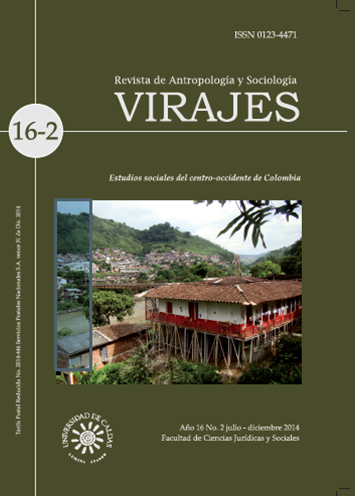Authors
Abstract
Memory is not a store house of memories or what is gathered in a family album, even less, nowadays when the supports of family memories, mainly those that live their present and their past in transitional residence spaces, have been virtualized. So, family memories do not have a physical support and are dispersed on the web, e-mails and in the youngest Facebook walls at best. The present is facing a sort of absence of essence in memory, and if not, a sort of amnesic deficit. Between families with migratory transnational experiences, the symbolic link from distance interaction turns into narrative dimension of the binding density in danger. The family project continuity, the permanence of the promise of reunification, the commitment before separation, the debt of the one who lives and the expectations of the one who stays, all this is the significant –if not the crankshaft- of the narrative construction of families geographically split. The own and peculiar family carrier, the knot tying and linking its members, changes, distances, intermittences and dynamics of divergent social and cultural experiences but simultaneous, are the resources that generate memories, forgiveness and silences of a narrative production that brings together the past and the present with an ensemble of demands, obligations and feelings moral in tension.
Keywords
References
___________. (1997). Razones prácticas. Sobre la teoría de la acción. Barcelona: Anagrama. CANDAU, J. (2002). Antropología de la memoria. Barcelona: Nueva Visión.
ELSTER, J. (2011). El desinterés. El tratado del hombre económico (I). México: Siglo XXI Editores.
FOX, R. (1985). Sistemas de parentesco y matrimonio. Madrid: Alianza Universidad.
GOODY, J. (1977). The domestication of the Savage Mind. Cambridge: Cambridge University Press.
GUTIÉRREZ DE PINEDA, V. (1975). Familia y cultura en Colombia. Tipología, funciones y dinámicas de la familia. Manifestaciones múltiples a través del mosaico cultural y estructuras sociales. Medellín: Universidad de Antioquia.
LÓPEZ MONTAÑO, L.M. (2009). Familias trasnacionales: oportunidad y cambio en contexto migratorio. Manizales: Universidad de Caldas.
ONG, W. (1997). Oralidad y escritura: tecnologías de la palabra. México: Fondo de Cultura Económica.
PUYANA VILLAMIZAR, Y., MICOLTA LEÓN, A., PALACIO, M.C. (Eds.). (2013). Familias colombianas y migración internacional: entre la distancia y la proximidad. Bogotá: Universidad Nacional de Colombia.
Entrevistas
AGUIRRE BUILES, J.E. (2009, Julio 17). P27. Historia de vida migrante (padre). (VÉLEZ LÓPEZ, C.C. Entrevistador).
BARCO, M. & BARCO, M. (2009, Mayo 14). P11. Entrevista hija migrante. (MEJÍA ÁVILA, Á.V. Entrevistador).
GÓMEZ, L. (2009, Junio 14). P10. Entrevista cuidadora. (MEJÍA ÁVILA, Á.V. Entrevistador).
JIMÉNEZ, G. (2009, Agosto 24). P34. Gildardo Jiménez. Cuestionario No. 2. (MEJÍA ÁVILA, Á.V. Entrevistador).
SARAZA, A. (2009, Julio 15). P17. Entrevista cuidadora. (MEJÍA ÁVILA, Á.V. Entrevistador).

 PDF (Español)
PDF (Español)
 FLIP
FLIP














